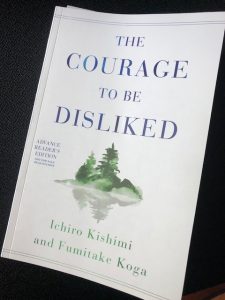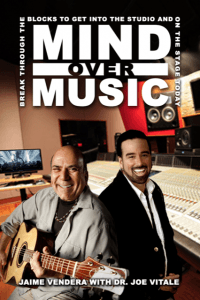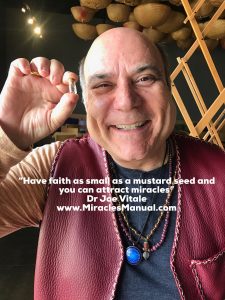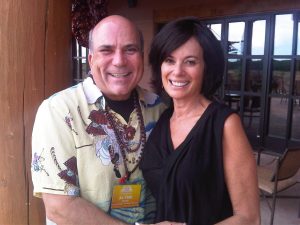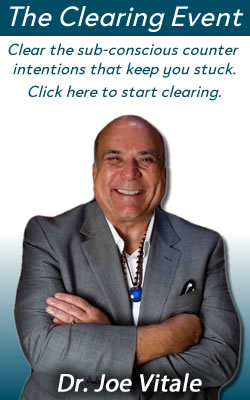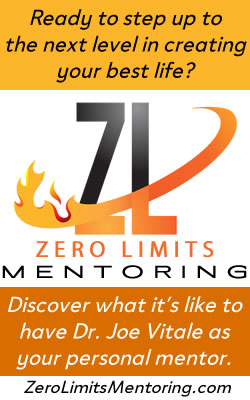Tag: jung
The Courage To Be Disliked
Last month I was lucky enough to be given an advanced prepublication review copy of The Courage to Be Disliked by Ichiro Kishimi and Fumitake Koga (Atria Books, May 2018 release).
I say “lucky” because the book changed my life.
I had never heard of it before. But the book is a runaway bestseller in Japan. It sold 3.5 million copies in Asia.
- A million copies sold of any book is miraculous.
- Over three million copies sold in Japan alone is staggering.
The book is a dialogue between a student and a philosopher.
The messages are potent.
Most of the material stems from the work of psychologist Alfred Adler. As much as I’ve read in psychology, I wasn’t familiar with Adler.
I am now.
Adler (1870-1937) was an Austrain physician, psychotherapist, and the founder of Adlerian psychology, sometimes called Individual Psychology.
Around 1907 Adler and Freud, along with Rudolf Reitler and Wilhelm Stekel, began meeting weekly in a type of early mastermind. Their “Wednesday Night Meetings” eventually grew into the birth of the psychoanalytic movement.
Freud and Adler did not agree and went separate ways. I’m currently collecting and reading Adler’s works, such as Understanding Human Nature (1927) and The Science of Living (1929).
While I am digging into the original words of Adler, I find The Courage To Be Disliked an easier approach to understanding him.
Here’s why…
The Courage to Be Disliked is a refreshing stir for self courage.
Rather than giving away your power to circumstances, you use your power for choice.
The book explains etiology, which is the idea of cause and effect, versus teleology, which is the idea of meaning and choice.
“We are not determined by our experiences, but are self-determined by the meaning we give to them…” – Alfred Adler
In other words, many schools of thought (including Freud’s) say you are the product of your past and/or your environment.
That is cause and effect thinking, or etiology.
But Adler’s approach is to say you can create your life from new meaning and choice, which is teleology.
Obviously, the latter is more empowering and freeing.
The latter doesn’t need anything outside of you to change for you to change.
You can change with a decision.
The Adler way is not one of victimhood but of empowerment.
For example, rather than saying you are the way you are due to the circumstances of your childhood, or current circumstances, you instead choose to create how you want to be from goals selected out of this moment.
- The past has no hold over you.
- Environment has no hold over you.
- Others have no hold over you.
At first glance, the concepts in The Courage to Be Disliked could seem daunting and unrealistic.
But as I kept reading the book, and following the concepts being explained, I realized that this book is a manual for awakening.
There are too many concepts to repeat here, but one crucial one is this:
“All problems are interpersonal relationship problems.”
Let that sink in.
“All problems are interpersonal relationship problems.”
The idea (simplified) is that you may sometimes try to please others, which is giving away your power to others.
You can’t easily be happy if you are waiting on another’s approval.
When you choose yourself, you are free.
You may be disliked; but you are free.
But here’s an even deeper insight…
An advanced insight is this: you have an interpersonal problem with someone in order to justify something you don’t want to do.
In short, you created the need for an excuse and then created the interpersonal problem to rationalize the excuse.
The problem or person didn’t come first; your need for a way out did.
This is similar to my own observation:
“The meaning you give an event is the belief that attracted it.”
You don’t realize it, but it’s actually you and your meaning/beliefs creating your life.
This completely transforms the idea of problems with other people.
You created them!
The Courage To Be Disliked explains all of this, and more, in an easy to read style.
It’s simply a conversation.
But “the student” is asking what you would probably ask.
And “the philosopher” is responding as might Socrates, or Adler himself.
Along the way you get “aha” moments of insights.
For example, learning to separate tasks is important.
That means learning to understand what is under your task to do, and what is for others to do.
- Wanting someone to like you isn’t your task. It’s theirs.
- Wanting a child to clean his or her room isn’t your task. It’s the child’s.
- Wanting to be recognized for success isn’t your task. It’s the public’s.
Knowing this “task separation” gives you freedom.
“We cannot think, feel, will, or act without the perception of some goal.” – Alfred Adler
I’ve often referred to people trying to give me their task as them trying to give me their monkey.
They don’t want to care for “the monkey” so they try to pass it off to me.
But I have enough monkeys.
Knowing that I don’t want another monkey, and that their task isn’t mine to do, makes it easier for me to have a boundary and maintain it for my own self-care.
As a result, I can be free.
Here’s a recent example:
Jaime Vendera is a vocal coach. A terrific one. He’s written Raise Your Voice and The Ultimate Breathing Workout. He’s helped lots of singers, including me.
He wrote to me one day saying he had an idea for a book I could write. He suggested it could be about mindset for musicians.
While I liked the idea, I sensed he was passing a monkey to me.
So I wrote back, saying it was his idea, or his task, so he should write it.
To my surprise, and his credit, he took the challenge.
He completely wrote the book, showed it to me, and I added some content, and a subtitle to it.
We are now coauthors of the book, Mind Over Music: Break Through the Blocks to Get Into the Studio and Onto the Stage. (It’ll be out next month.)
Instead of my taking on his task, I simply kept my boundary and supported him.
The result was a win-win for both of us.
Do you see how this works?
The Courage to Be Disliked contains far more wisdom, theory, and technique than I could possibly relay in this article.
But I don’t want you to settle for this post.
I want you to read the book.
Whether you do or not, of course, is your task, not mine.
Ao Akua,
PS – The Courage To Be Disliked will be in stores May 8, 2018. You can order it in print, for your Kindle reader, or on audio right now at Amazon: https://smile.amazon.com/Courage-Be-Disliked-Phenomenon-Happiness/dp/1501197274/
The Surrender Experiment
I read Michael Singer’s bestselling book, The Surrender Experiment, in one day.
His true story of simply meditating every day and doing whatever was in front of him to do led to everything from him being a land owner, leader of a spiritual community, author of a bestselling book, a multimillionaire with hundreds of employees, and more.
All he says he did each day was “surrender” to the “flow” of life.
While I loved the book, it raised a lot of questions.
For example, Singer seems oblivious to his own belief system.
Early in the book, when he is offered money to teach, he resists and refuses.
That hardly sounds like surrender.
It sounds more like he had beliefs about money.
Otherwise, why wouldn’t he surrender to the offering?
Later, when his software service becomes so marketable that it brings millions of dollars in his direction, he redirects it away from himself, buying more and more land and donating it to his growing spiritual community, which is where he happens to live.
There is nothing wrong with any of this, of course.
But being aware of this behavior is crucial to spiritual awakening.
Too many people still think “money bad” when in fact money is neutral.
It’s your beliefs about it that make it good, bad, or indifferent.
Also, Singer says he has “no intentions” and no “personal preferences” – yet he intends to meditate every day and intends to surrender to the flow, and prefers to meditate in the morning and at night.
And when he can’t decide something, the most powerful personality in the room gets him to “surrender” to his desire, such as take a job, or take pay.
Clearly, the author is intending and preferring.
But let’s go even deeper.
Singer’s surrender to the flow of life lands him with an FBI raid, a lawsuit of the magnitude more attorneys then you have ever thought possible are brought in to handle the case, and the journey through the courts lasts years.
While it all worked out in the end – which is part of Singer’s point – why did it happen in the first place?
Throughout his book he suggests that the “the flow” of life is an underlying spiritual force that has intelligence and that is taking care of us, leading us to the experiences we need for our next growth spurt and consciousness expansion.
While I don’t argue with the flow – I do my best to honor it each day myself – you have to stop and reflect on what is the flow – your unconscious mind or the sum total of all life’s previous decisions or some wise Divinity?
Carl Jung said it best with the quote I used in my book, The Attractor Factor —
“Until you make the unconscious conscious, it will direct your life and you will call it fate.”
Millions of people, including Singer, swear by meditation as the way to see beyond the chatter of the mind and find the flow.
But many new books, such as The Buddha Pill, offer compelling evidence that meditation can actually be dark.
Personally I feel it depends on the user.
If you are already of sound mind and body, meditation may help you relax even more and give you the ability to see behind the curtain, to the “whiteboard” or Witness of life.
But if you are new to meditation and personal development, and have any emotional issues or past traumas, meditation may mask your wounds, hide your emotions, and allow your unconscious to trick you.
For example, we saw the movie Love Sick the other night.
It was about a man who falls in love and then sabotages his love.
To everyone else, he is insane.
Why would he sabotage his own love life?
To himself, he is sane.
His behavior and what he sees is all very real, and very accurate, to him.
It isn’t until someone shows him an MRI scan of his own brain in love, and explains his self destructive behavior, that he wakes up and begins to reshape his brain to create new behavior.
But his “flow” led him to paranoia.
His “natural” tendency was to fall in love and then find a reason to break off the relationship.
That was his flow.
And it wasn’t healthy, or getting him what he really wanted.
Again, I firmly believe that the unconscious/subconscious is running the ship of our lives, and often into rocks.
We have to awaken to our own programming to get a handle on just what is urging us to act.
After all, I’ve spent decades teaching about “counter-intentions” — those unconscious beliefs that cause you not to attract your conscious intentions.
Books such as The Key and audios such as The Missing Secret are designed to help you awaken to what is and is not the flow in your life.
Here’s another example that you’ll probably relate to:
When you go on a diet, your natural “flow” is to keep eating, not stop.
The current of your life is already moving in the direction of over eating.
That is your present “flow.”
It will feel like you are battling the flow in order to hold your hands down when facing yummy foods.
So, do you really want to follow the flow when you are dieting?
Here’s another example:
When I was drafting the post about my new Gullwing Mastermind, I accidentally hit a key that deleted the entire post.
I was shocked.
I had no idea what I did, or how, or why.
In my panic, I closed all my open windows and rebooted my computer.
When I opened the post, the file had returned.
But then things got even stranger.
When I reached to hit the button to save my post, I accidentally published it.
I couldn’t believe it.
I wasn’t ready to publish the article yet.
But I took a deep breath, decided “something” wanted me to go ahead and post that article, and I accepted it.
But was it my unconscious or the flow that made me do it?
To paraphrase Jung, until you awaken, you will say Fate (or The Flow) is creating your life, when in reality it’s your own unconscious mind.
And let’s not forget that you can re-direct the flow with a decision.
If you haven’t been working out, your flow is to stay on the couch.
But after you set an intention and make a decision to exercise, your new flow will have you moving again.
At first it may feel unnatural, because you are going against the “flow” of a habit you had, but as you persist, your new flow will become natural.
Said another way, the neuro-pathways in your brain were already paved and running to keep you on the sofa; when you decided to exercise, you began to build new neuro-pathways, thereby creating a new behavior, a new habit, and a new flow.
So yes, there is a flow in your life already moving, but you can redirect it with a decision.
You just have to be awake enough to do it.
And now, before you go, let’s look at this whole issue even closer...
There is a deeper level of flow, the “witness” behind it all, and identifying more with It than the thoughts and feelings overlaying it, may be a wiser approach to surrender.
Our job is to discern the difference.
For example, what drove me to write this commentary?
On one level it could be my unconscious beliefs about being “right” and how I feel it is necessary to prove how smart I am by pointing out what Singer missed.
On another level, it could be due to the deeper flow nudging me to write this because it needs written, no matter what explanation or rationale, in order to contribute to the awakening of the planet.
Or maybe I jut decided it was a great opportunity to speak my mind.
Which is correct?
I honestly don’t know.
The Witness non-judgmentally observes all.
But I, like Singer, am simply doing what I sense is the next appropriate thing for me to do in this moment.
Again, I loved Singer’s book and urge you to read it. It is a hypnotic read, fast moving, and entertaining. He is on to something with surrender, but just be alert to what you are surrendering to.
After all, the Witness just witnesses; it doesn’t tell you what to do.
It will witness you cry or laugh or do or not do.
You, as a thinking, feeling being, still get to decide.
Bottom line: surrender to the flow that is the most loving and empowering, while paying attention to how you created/attracted the flow in the first place through your own previous decisions, and know that any decision you make now contributes to or even redirects the flow.
I’ll say that again –
- surrender to the flow that is the most loving and empowering,
- while paying attention to how you created/attracted the flow in the first place,
- and know that any decision you make now contributes to or even redirects the flow.
Just something to think about.
Ao Akua,
PS – I am currently reading Singer’s earlier book, titled The Untethered Soul. It is also excellent.

